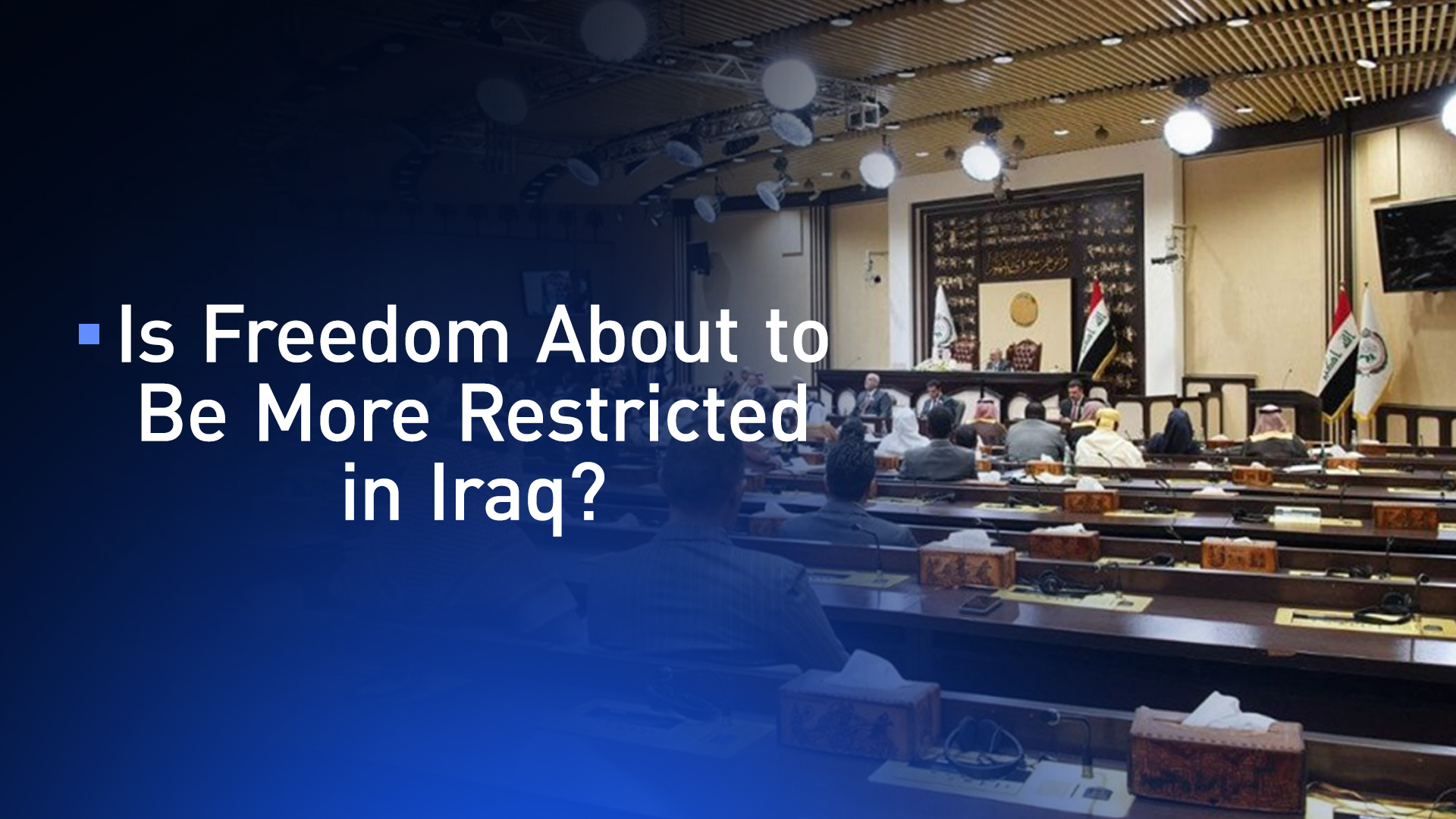Iraqi Parliament to Vote on Disputed Freedom Law Amid Secrecy Concerns
Iraq's Parliament is set to vote on a controversial freedom of expression law. Amnesty International and local groups raise alarms over a lack of transparency, fearing it will further suppress civil liberties amid a climate of repression against activists and journalists.

ERBIL (Kurdistan24) – The Iraqi Parliament is scheduled to vote on a contentious draft law on freedom of expression on Saturday, a move that has ignited sharp criticism from international rights organizations who warn it could become another tool to suppress civic space in the country.
The vote on the "draft law for Freedom of Expression, Peaceful Assembly, and Demonstration" is listed as the fifth item on the agenda for the parliamentary session on August 2, 2025, according to a statement released by the Council of Representatives. The proposed legislation, which consists of 17 articles, has been a subject of intense debate and opposition from civil society groups in recent years, who believe previous versions aimed to impose further restrictions on fundamental freedoms.
Ahead of the planned vote, Amnesty International issued a strong appeal to Iraqi lawmakers. "Lawmakers must vote against or propose amendments to any laws that would add to the arsenal of tools that the authorities are already using to restrict civic space or betray Iraq’s constitutional and international commitments to protect freedoms of expression and peaceful assembly,” said Razaw Salihy, Amnesty International’s Iraq Researcher, in a statement.
The Parliament’s Human Rights Committee has sought to allay these concerns, clarifying that the current draft "does not restrict demonstrations." According to information provided, the bill's name has been changed to "Protection of Freedom of Expression," and clauses that stipulated imprisonment or fines have been eliminated.
Furthermore, a requirement for government permission to hold protests has reportedly been removed, replaced by a requirement to simply notify the relevant administrative unit.
However, these assurances have been met with deep skepticism, fueled by what critics describe as a complete lack of transparency.
"This draft law is being surreptitiously snuck through in a shroud of secrecy," Salihy’s statement continued. "With no real transparency and no public debate on the current draft, civil society is left guessing what is being put before lawmakers to vote on."
Amnesty International noted that civil society organizations that reviewed unofficially shared drafts expressed concern that the law, if passed, "would result in further violations of the rights to freedom of expression and peaceful assembly."
These concerns are echoed by local watchdogs. The Iraqi Journalists' Rights' Defense Association (IJRDA) has accused the Parliament of "deliberately not publishing the draft law." The association asserted that "there is more than one draft of the law," and that "no one knows which version will be voted on in the parliamentary session." The group also voiced suspicion over the timing of the vote, suggesting a "desire to pass it before the parliamentary elections."
The debate over the bill occurs against a backdrop of increasing pressure on free speech in Iraq. Amnesty International highlighted that "activists and journalists across Iraq are harassed, threatened, and arbitrarily arrested—often under vague defamation charges and other provisions in the penal code." The rights group pointed to recent cases where activists were arrested for speaking out over corruption and poor public services, and journalists faced judicial harassment for criticizing authorities.
These "repressive measures have cast a chilling effect on free speech," the organization stated.
The draft law previously had its first reading on Dec. 3, 2022, and a second reading on May 9, 2023. At the time, drafts "caused immense outcry from Iraqi civil society," according to Amnesty International.
While the Parliament insists that comments from civil society have been taken into account in the new version, the process has been "carried out mostly in private," in a manner that civil society has called lacking in transparency and inclusiveness. With no official draft made public for assessment, fears persist that the legislation will not bring positive change.
